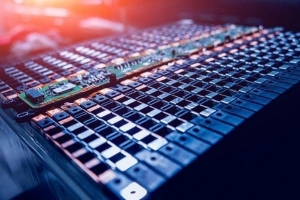WISPRO manager Jean Chou: Dyson’s self-developed solid-state battery technology could be the next cash cow.
In October 2019, UK vacuum cleaner manufacturer Dyson announced that it was giving up on developing its own electric vehicle business. Dyson has invested a total of £500 million in the development of electric vehicles. However, its own solid-state batteries claimed to significantly increase the range of electric vehicles (up to 600 miles, or 966 kilometers). In the end, the company chose not to invest anymore, due to the huge money pit and the challenging market conditions.
“Just because Dyson is giving up on EVs doesn’t mean it will give up on solid-state batteries, which are the key components in the popularization of EVs, a technology in which Dyson is at the forefront,” Wispro manager Jean Chou says.
The cost of batteries accounts for around 40% of the manufacturing cost of electric vehicles. The Dyson N529—which costs up to £150,000—is presumed to be the result of the high price of its newly self-developed solid-state battery. In addition to the materials used, a large part of the battery cost depends on the level of mass production and manufacturing yield rate. Therefore, battery cell manufacturers need to invest a lot of money to increase the scale of mass production and automate production to reduce manufacturing costs.

Among Dyson’s solid-state battery patents, the largest number of patents are related to cell level—Structure & Manufacturing. Solid-state batteries are a new type of battery technology that is still a long way from mass production, so Dyson’s main R&D focus is on manufacturing cells on a large scale and maintaining an acceptable yield rate.
WISPRO manager Jean Chou supposed that Dyson would continue to develop its solid-state battery to drive the mass production process. It is believed that Dyson also sees the market potential of solid-state batteries, which is why most of the battery-related patents are owned by Dyson Technology LTD, rather than Dyson Automotive R&D LTD—a subsidiary specializing in electric vehicles. The battery for electric vehicles is still a key component that needs to be improved, and there is still a lot of work to be done on battery safety and energy density.
Although Dyson has decided to abandon the development of electric vehicles, it can still take its place in the industry as a battery supplier. In addition to electric vehicles, solid-state batteries can also be used in other Dyson products, such as cordless vacuum cleaners. Perhaps solid-state batteries will be the next cash cow after Dyson’s motor technology. As more patents become public, WiISPRO will continue to provide insights on the development of Dyson’s solid-state battery for its readers.

